By Kristyn Lue and Julie Posselt
At the Equity in Graduate Education (EGE) Resource Center, we knew that the Supreme Court’s 2023 ruling on race-conscious admissions could lead to what recent Pullias Lecture panelist Liliana Garces and her colleagues have coined “repressive legalism” — the tendency for people and organizations to take a more restrictive approach to implementing law than what is required, out of fear of litigation.
The need to revisit admissions processes to ensure compliance with the Supreme Court ruling presented an opportunity to bring rigor, equity, and transparency to the process. However, when repressive legalism is at play, professionals may be distracted from the possible actions that can be taken. Although partners of the EGE Consortium, the IGEN Alliance, and the broader community may be committed to diversity in principle, repressive legalism put the realization of this commitment at risk for this year's admissions cycle.
As a learning community, we did not have all the answers for how institutions could move forward — but we also knew that we didn’t have to have all of the answers to be helpful. After all, every institution has a unique context, climate, and profile of risk tolerance, and thus, a distinctive set of practices and policies that would make sense as they adapt to a new legal reality.
In July, shortly after the SCOTUS decision, we hosted a community discussion to provide a broad overview of the decision and its implications for graduate education, as well as to hold space for our community to process their reactions to the ruling. Most importantly, we wanted to learn about how we could best support the group during the fall application season. We were careful to distinguish this discussion from the legal guidance and to recommend that attendees bring institution and state-specific questions and plans to their own general counsel.
More than 150 people attended our July discussion. Many were attuned to repressive legalism and wanted to know how they could mitigate overinterpretation of the SCOTUS decision. They sought research-based resources and tools to inform their practice as well as informal opportunities to learn from and share with each other. They appreciated the tools and approaches they had previously learned about in EGE workshops and virtual journal clubs, and sought guidance on their continued use of our research-based resources and tools in light of the SCOTUS ruling.
Based on these outcomes, we decided to forego hosting our quarterly virtual journal club for a period. Instead, we hosted monthly community discussions over the fall semester to translate new research and collectively explore its implications for practice on specific areas of admissions practice that might have been impacted by the decision.
Many institutions were rethinking the role of the personal statement in light of Chief Justice Roberts’ majority ruling, for example, so September's community discussion centered on how to conceptualize, structure, and prompt essays and personal statements to elicit mission-relevant qualities without forcing students to disclose traumatic experiences.
In October, we covered how rubrics might need to be refined, and our November discussion focused on designing and executing high-quality, equity-minded admissions interviews. Here we discussed principles and actions to reduce the risk of bias that is common in interview contexts. Across all of them, we tried to center equity-minded principles of practice, and position the law as one of several organizational design parameters.
Throughout, we have been clear to define that our role is not to provide legal guidance. We have, however, shared institutional guidance from Ed Counsel and the Department of Education, and we encouraged attendees to reach out to their general counsel for dialogue and context-specific guidance.
Making the social science of equity accessible has been central to our work for years, but hosting these community discussions was a powerful reminder of the value of having researchers and practitioners in conversation. Not only is there expertise and wisdom among our members, but navigating change is less daunting with the ideas and support of colleagues experiencing similar challenges. Pedagogically, we have seen how the same cycles of learning, reflection, and dialogue advocated by Paulo Freire, which ground EGE’s professional development activities, are also useful as organizations rethink admissions processes under a new policy paradigm.
We invite you to engage in our community and its work by visiting our Equity in Graduate Education Resource Center website.








